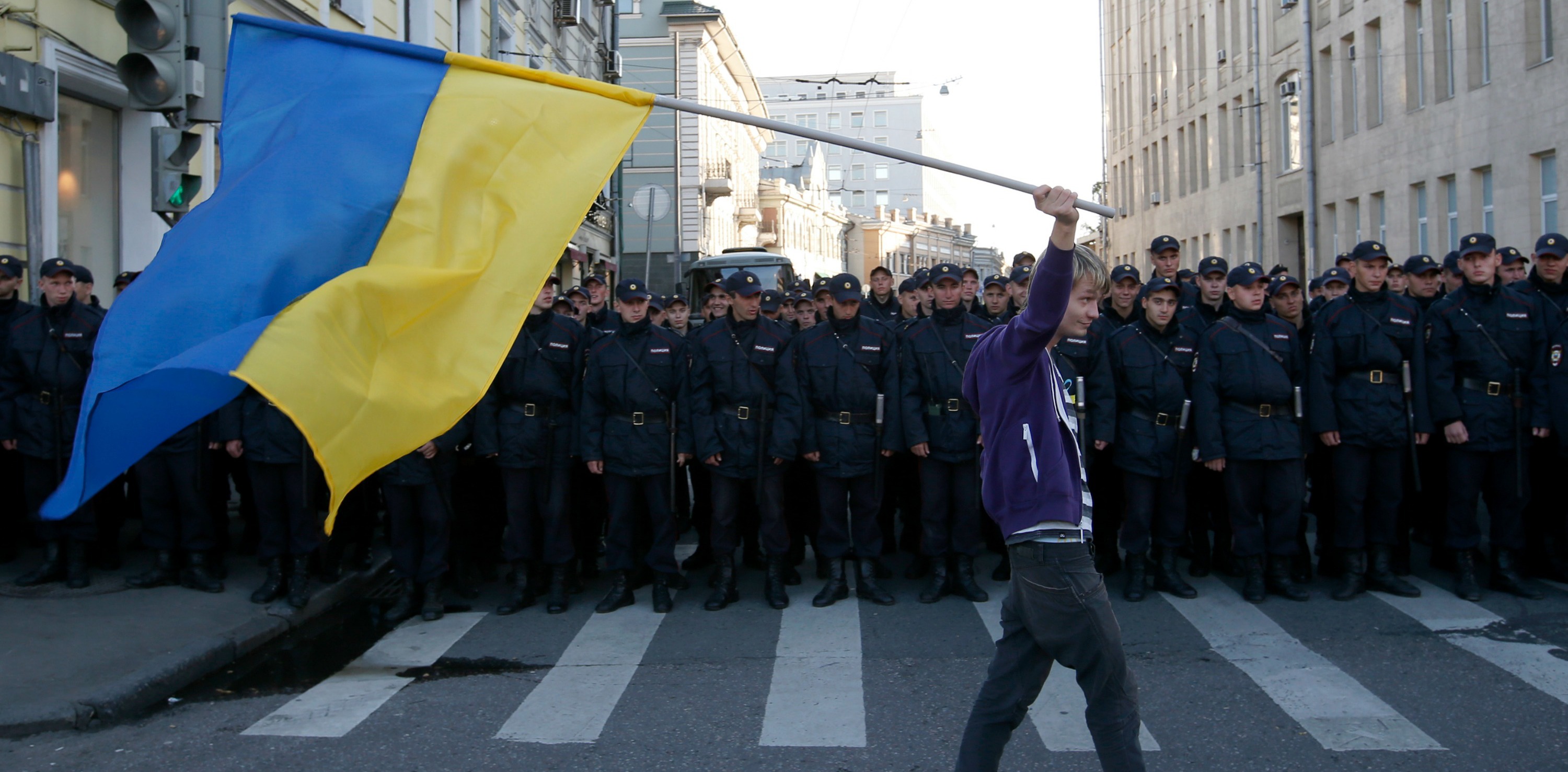Kait’s On the Ground series aims to showcase the personal consequences of current conflicts and political hot-topics. In a world of frenzied media focused on escalating tensions and violence between state and non-state actors, the human voice of average citizens is often ignored. Through interviews with students and young professionals, Kait looks to give more global citizens a voice, an opinion, and the ability to give readers a fresh perspective.
I met Natalya and Iryna* over two years ago in South Africa, a country with its own host of current problems widespread in the news. We were all working for public health organizations and met in Cape Town for a week-long curriculum training session. Through Natalya, Iryna, and the rest of their team, I learned about their passion for helping under-served communities struggling with high rates of HIV and a lack of education in Ukraine. We spoke about their country, what it was like living in Kiev, and its difficult history with Russia. What we did not discuss was the possibility of conflict—a notion that seemed so irrelevant it wasn’t mentioned as I learned about their home.
The ongoing conflict in Ukraine is nothing new to American newsreaders. Following the February 2014 Ukrainian revolution, Russia began moving its military troops and equipment into the Eastern regions, ultimately annexing Crimea and supporting pro-Russian separatists in Donetsk. This much is already well known. Since this highly contested, but strategic move by Russia, tensions between the United States and Russia have escalated. In the media the political relationship between the two giants has become the focal point, while the citizens of Ukraine have largely been forgotten. Ukraine has been portrayed as both a victim of the conflict and a pro-Russia supporter, but more than anything Ukrainian citizens want peace, stability, and the chance to be seen as more than bystanders in the ongoing conflict.
Natalya and Iryna were able to provide a look at what it has been like to live in Kiev during the conflict—how citizens largely ignored by the over-hyped Cold War rhetoric are shouldering consequences of the actions of their government and the whims of Putin’s Russia. Both Iryna and Natalya persevere with their incredible work in Ukraine despite current limitations and are optimistic for the future.
Natalya continues to work for the HIV Preventive Project for Youth through which we met, but has seen a reduction in their reach since the conflict began. As an HIV Primary Prevention Expert, Natalya oversees the implementation of its programs within primary schools across Ukraine. Because the organization is funded by a German international organization, which supports the Ukrainian government, Natalya’s nonprofit cannot recognize or measure any of their work happening in “fake republics”—according to Ukraine—such as the Donetsk oblast. Since the conflict began, their programs have been mostly limited to their focus region, Dnipropetrovsk oblast. Educators outside of the focus region can still use the methodology and receive consultancy and material support from Natalya, but while some educators in the Donetsk region are trying to implement the curriculum, the reporting of their numbers for monitoring and evaluation cannot be recorded or used for official purposes.
Although the HIV Preventive Project for Youth’s reach has been limited by the conflict, the organization is relatively lucky because they are based in Dnipropetrovsk oblast (although located in the Eastern region of the country, it does not share a border with Russia). Non-profits established in Donetsk or Lugnask were forced to move due to dangerous and chaotic conditions after Russian troops invaded in August of 2014. The German organization that funds Natalya’s nonprofit had economic and municipality development projects in Donetsk and Luhansk which were evacuated to Kiev.
Natalya has personally witnessed the immense suffering of Ukrainian citizens who are losing fathers, sons, and husbands to the military conflict or are being forced to flee Donetsk and Luhansk oblasts. To this day, over one million citizens are internally displaced, placing incredible economic strain on other regions of Ukraine. What is clear is that the Budapest Memorandum on Security Assurances of 1994—signed by Russia and Ukraine—illustrates a failure for the enforcement of international law. Although the current situation appears grim, as Natalya put it, “I believe that we will overcome our problems, lots of volunteer movements are helping IDPs, the Army, and affected children. In this situation we are trying to be united.”
Today, Iryna works on an USAID funded initiative, which supports local civil society organizations, authorities and initiative groups to face challenges caused by the conflict. The initiative does not support any activity related to the military sector or the conflict directly, but rather focuses on supporting other initiatives aimed to reduce consequences of the conflict. This includes anything from supporting volunteers working with internally displaced persons, renovations of private and public buildings, and the local media.
Currently, the most pressing strain on Ukrainian citizens is the economic crisis caused by the conflict. Unemployment has skyrocketed, prices are rising, salaries are the same or reduced, in some regions there are delays in payments, and citizens have watched their savings become immensely undervalued. Iryna believes many citizens only want peace and for fighting to stop. At the same time Ukrainians do not want to give up the current occupied regions to Russia or as independent “establishments.” They also do not trust the new government or the President and are unsure of how people are surviving amongst current conditions. While daily life in Kiev has not changed so much, no one knows what may happen tomorrow. Ukrainians are living in a state of uncertainty, waiting like pawns to see what move the Ukrainian and Russian governments take next, but as Iryna expresses, “I want to hope all will be OK.”

